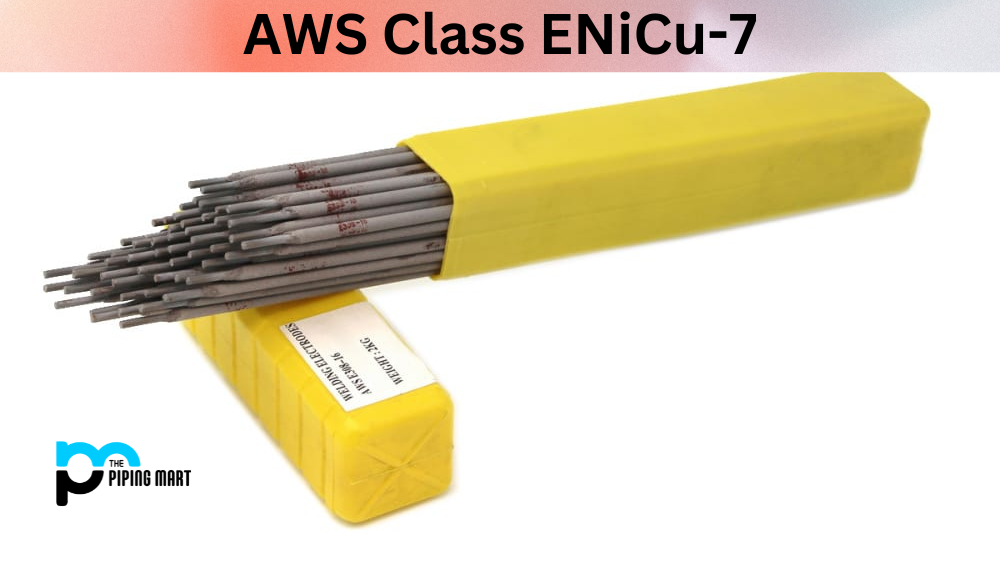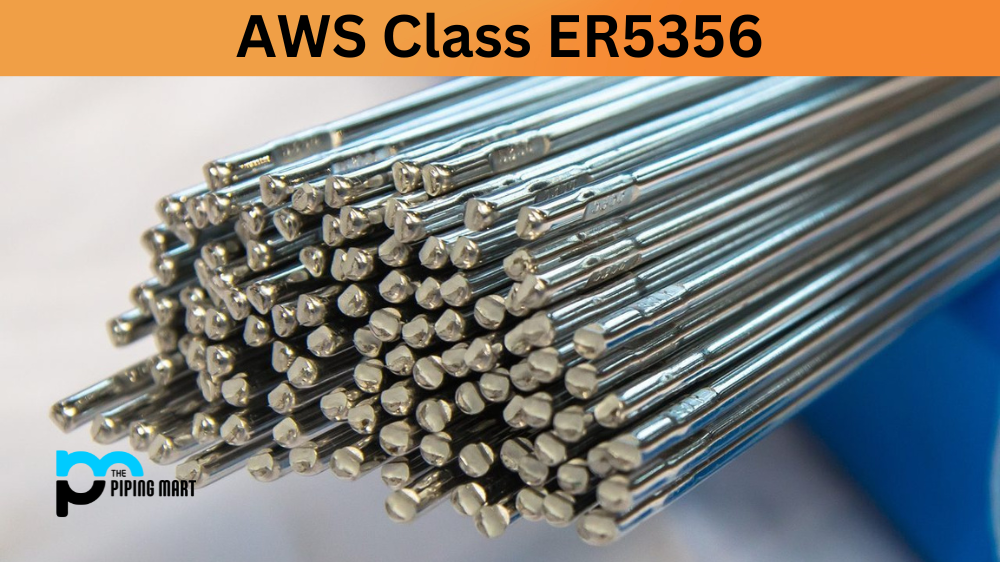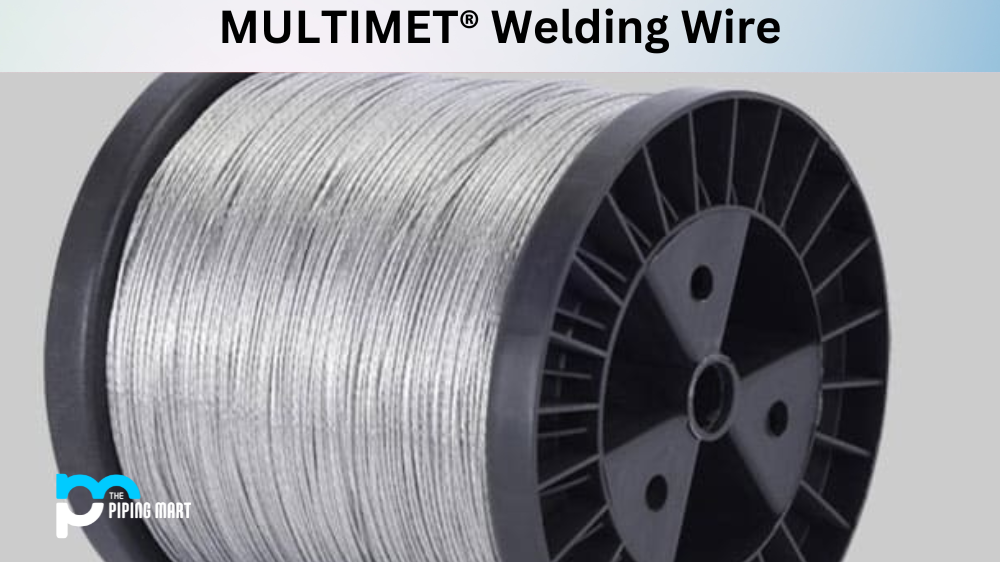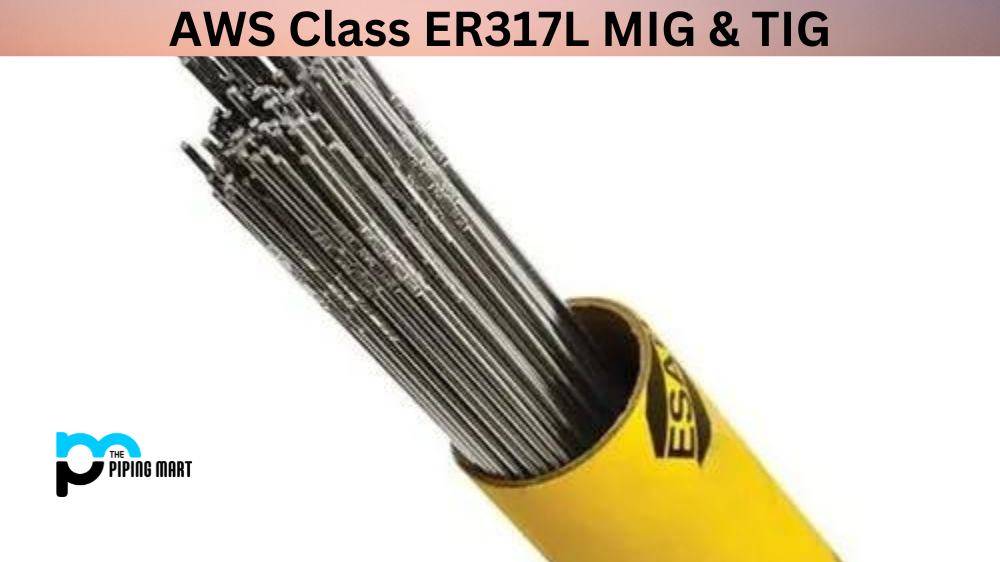Are you working in the welding field or looking to expand your knowledge of welding materials? Then you’ve come to the right place! This blog post will deeply dive into AWS Class ENiCu-7, a welding filler material used for welding nickel-copper alloys. We will cover its composition, properties, uses, heat treatment and corrosion resistance.
What is AWS Class ENiCu-7 Welding Electrode ?
AWS Class ENiCu-7 welding alloy is a nickel-copper alloy created and certified by the American Welding Society (AWS). It is a copper-nickel combination, containing approximately 60% nickel and 28–35% copper, with small amounts of iron and manganese. AWS Class ENiCu-7 welding electrode offers excellent corrosion resistance in fresh and saltwater environments and provides high strength when heat treated. This alloy has good impact toughness even at cryogenic temperatures, which makes it suitable for many applications in the marine industry, including shafts, prop nuts, fasteners, bearings, and impellers. Other advantages of using AWS Class ENiCu-7 coated electrode include its fabricability (it can be hot or cold worked), weldability (it can be welded without any pre or post-treatment) low thermal expansion coefficient that makes it great for heavy-duty sea floor applications.
ENiCu-7 Welding Alloy Composition
AWS Class ENiCu-7 is an welding electrode made of nickel-copper alloy, officially known as UNS No. N04060. It contains 63% nickel, 30% copper, and small amounts of iron, silicon and manganese—this combination of metals results in its unique properties, which we will discuss later.
| C | Mn | P | S | Si | Cu | Nb+Ta | Al | Ti |
| 0.03 | 3.70 | 0.01 | 0.004 | 0.80 | Balance | 0.5-3.0 | 0.09 | 0.60 |
ENiCu-7 Coated Electrode Physical Properties
AWS Class ENiCu-7 filler metal has a melting range of 1290-1350°C and a density of 8.84 g/cm³. Its electrical conductivity is 30% IACS (International Annealed Copper Standard), making it a good electrical conductor. This welding material is available in various sizes and forms, including rods, wire, and strips.
ENiCu-7 Welding Wire Mechanical Properties
AWS Class ENiCu-7 Welding rod has excellent strength and flexibility. Its ultimate tensile strength is around 83,000 psi, and its elongation is about 35%. It is also resistant to hot cracking and has good weldability. These properties make it ideal for welding copper-nickel alloys, marine applications, and more.
| Tensile Strength | 75,000 psi |
| Yield Strength | 51,500 psi |
| Elongation | 38% |
ENiCu-7 Coated Electrode Trade Names
| Class | UNS | Oxford Alloys | Special Metals | UTP | ESAB |
| ENiCu-7 | W84190 | Alloy 190 | MONEL WELDING ELECTRODE 190 | UTP 80 M | OK NICU-7 |
ENiCu-7 Coated Electrodes Parameters
| Diameter | Length | Amperage | |
| Flat | Vertical & Overhead | ||
| 3/32” | 12” | 70-85 | 65-75 |
| 1/8” | 14” | 85-110 | 80-90 |
| 5/32” | 14” | 110-140 | 110-120 |
| 3/16” | 14” | 120-160 | 110-130 |
ENiCu-7 Welding Wire Uses
AWS Class ENiCu-7 coated rod is widely used in the marine industry for welding copper-nickel alloys such as CuNi 90/10 and CuNi 70/30. It is also used for welding dissimilar metals, such as copper-nickel alloys, to stainless steel or carbon steel. Other common applications include heat exchangers, condensers, and piping systems.
ENiCu-7 Welding Electrode Heat Treatment and Corrosion Resistance
AWS Class ENiCu-7 filler metal does not require any heat treatment after welding. However, it is essential to ensure proper preheat and interpass temperatures to prevent cracking. This welding alloy – nickel-copper alloy also has excellent resistance to corrosion, including seawater corrosion, erosion, and pitting.
Conclusion
After reading this guide, it is clear that AWS Class ENiCu-7 is a welding filler material with numerous properties and applications. Its unique composition of nickel, copper, and other metals provides excellent strength, flexibility, and conductivity. Its outstanding resistance to corrosion makes it ideal for marine and other harsh environments. We hope this guide has been informative and valuable to you as you continue expanding your welding industry knowledge.

A passionate metal industry expert and blogger. With over 5 years of experience in the field, Palak brings a wealth of knowledge and insight to her writing. Whether discussing the latest trends in the metal industry or sharing tips, she is dedicated to helping others succeed in the metal industry.




